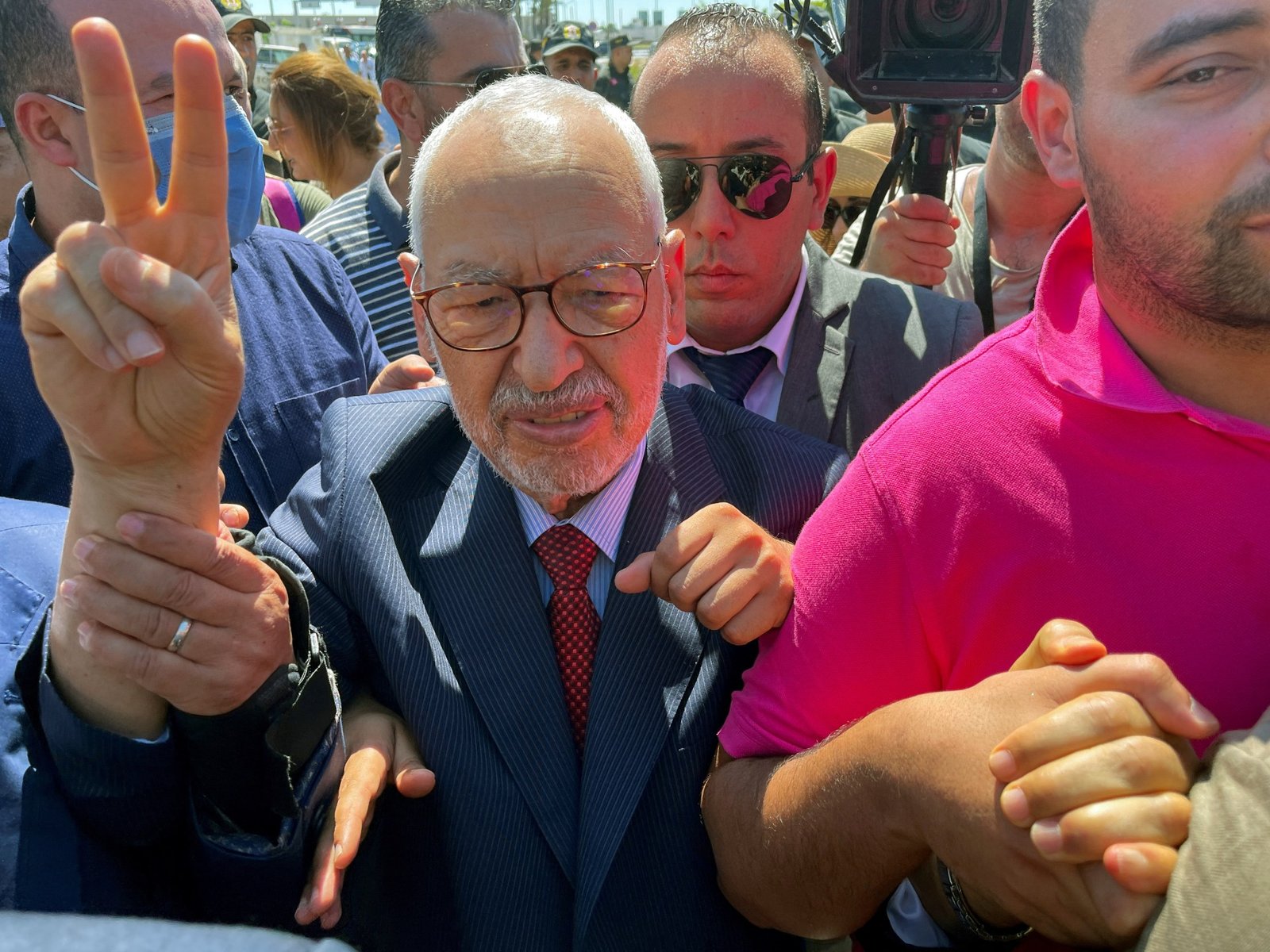Tunisia’s opposition leader Ghannouchi, ex-premier, and past presidential aide face severe sentences as President Kais Saied intensifies his measures against dissent.
In a significant legal development, a Tunisian court has sentenced 21 prominent political figures and former officials, notably including Rached Ghannouchi, the head of the Ennahdha party and former Speaker of Parliament. This information was reported by the Tunis Afrique Press (TAP).
The court’s decision on Tuesday reflects President Kais Saied’s unyielding campaign against critics and political adversaries, further tightening his grip on power.
Ghannouchi, who has been incarcerated since 2023, faces up to 14 years in prison. Other significant sentences were handed down in absentia, with former Prime Minister Youssef Chahed and ex-Minister of Foreign Affairs Rafik Abdessalem Bouchlaka receiving 35-year sentences.
Nadia Akacha, once Saied’s influential chief of staff, also garnered a 35-year sentence in absentia, as reported by TAP.
The individuals are charged with a range of alleged crimes, including membership in a “terrorist” organization and conspiracy to undermine state security.
Reacting to the judgments, Bouchlaka dismissed them as farcical, criticizing the Tunisian government for what he called its “childishness and recklessness.” He asserted that the regime, which he characterizes as a “lying and deceptive coup,” will eventually fall like its authoritarian predecessors.
Since Saied’s suspension of the elected parliament and assumption of rule by decree in 2021—actions widely viewed as a coup—many political leaders, journalists, and critics have faced imprisonment. The opposition alleges a systematic targeting of dissent under the guise of law enforcement.
Many observers are alarmed that the progress toward democracy in Tunisia, the birthplace of the Arab Spring following the 2011 revolution against Zine El Abidine Ben Ali’s regime, is being severely undermined.
President Saied refutes these claims, asserting that his approach is constitutional and intended to rectify years of instability and corruption.
Ennahdha has vehemently denied the allegations against its members. After the 2011 uprising, the party rose to prominence, and Ghannouchi played a key role in negotiating a power-sharing arrangement to establish democratic governance.
Just last year, the government shut down Ennahdha’s main office in Tunis. At 84 years old, Ghannouchi is already serving multiple sentences, including a 22-year term received in February for “plotting against state security,” which his supporters argue are politically motivated.
Ennahdha has condemned the latest ruling as a blatant violation of judicial independence and an overt politicization of legal processes.

